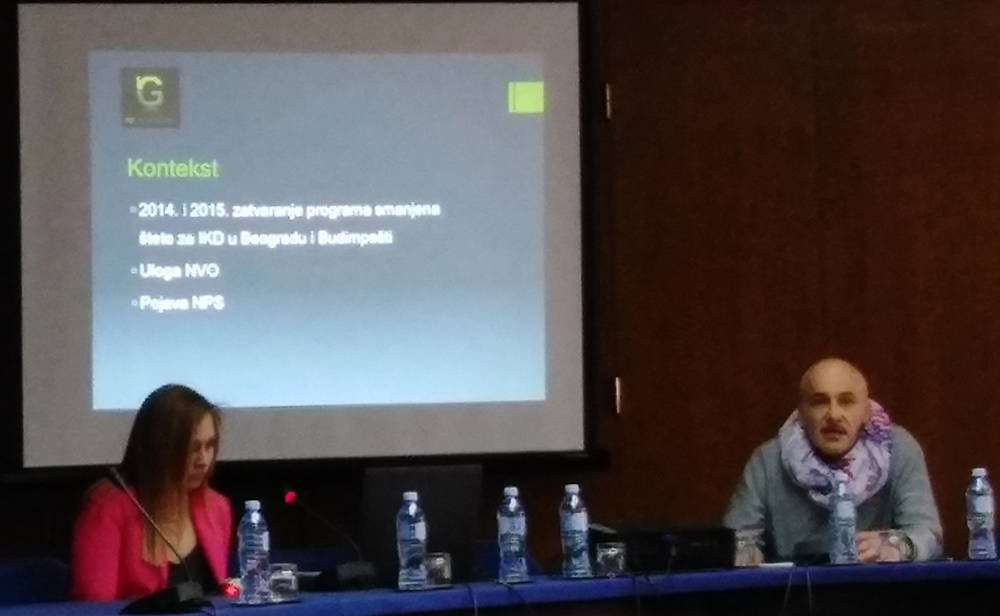 DPNSEE member organisation Re Generacija implemented the survey “Access to services of ex-users of the needle and syringe programme closed in Belgrade and Budapest” with the support of the Rights Reporter Foundation. Aim of the survey, implemented in 2018, was to analyse the consequences of closing the services and the effects that it has on risks and daily life of injecting drug users. Objectives included to reach out to the service users and learning about their current use of substances, mapping their access to services, sterile injecting equipment and analysing their perception of the closure of services and most important currently missing service. The conference was also an opportunity to discuss the current situation with recently established outreach programmes, as well as opioid substitution therapy and early warning system for new psychoactive substances.
DPNSEE member organisation Re Generacija implemented the survey “Access to services of ex-users of the needle and syringe programme closed in Belgrade and Budapest” with the support of the Rights Reporter Foundation. Aim of the survey, implemented in 2018, was to analyse the consequences of closing the services and the effects that it has on risks and daily life of injecting drug users. Objectives included to reach out to the service users and learning about their current use of substances, mapping their access to services, sterile injecting equipment and analysing their perception of the closure of services and most important currently missing service. The conference was also an opportunity to discuss the current situation with recently established outreach programmes, as well as opioid substitution therapy and early warning system for new psychoactive substances.
The results of the survey were presented today at the conference organised together with the Office for Combating Drugs of the Government of Republic of Serbia. The conference was held in the Palace of Serbia, with participants coming from both governmental and civil society sectors.
Two major groups of users were approached by the survey: drug users which were using the services for a long time and Roma people. A typical drug user both in Belgrade and Budapest is male, in mid-forties, with low education and income. In Budapest, users mainly use new psychoactive substances (synthetic cathinones), while in Belgrade they mainly use opioids (heroine). One of the main conclusion from the survey is that closing the services caused even more difficulties to reach out to drug users who are usually very suspicious.
To get more information and results of the survey, please contact Re Generacija following this link>>>>.


